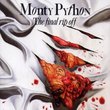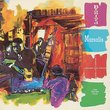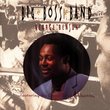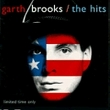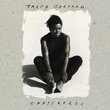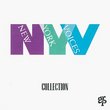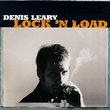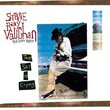| All Artists: Thelonious Monk Title: Monk's Dream Members Wishing: 4 Total Copies: 0 Label: Sony Release Date: 9/3/2002 Album Type: Original recording reissued, Original recording remastered Genres: Jazz, Pop Styles: Modern Postbebop, Bebop Number of Discs: 1 SwapaCD Credits: 1 UPC: 074646353622 |
Search - Thelonious Monk :: Monk's Dream
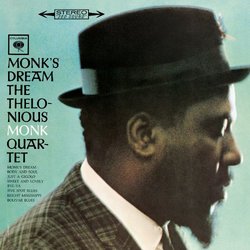 | Thelonious Monk Monk's Dream Genres: Jazz, Pop
No Description Available No Track Information Available Media Type: CD Artist: MONK,THELONIOUS Title: MONK'S DREAM Street Release Date: 08/27/2002 |
Larger Image |
CD DetailsSynopsis
Product Description No Description Available No Track Information Available Media Type: CD Artist: MONK,THELONIOUS Title: MONK'S DREAM Street Release Date: 08/27/2002 Similar CDs
Similarly Requested CDs
|
CD ReviewsThe flowering of Monk's genius fully on display Jan P. Dennis | Monument, CO USA | 11/15/2003 (5 out of 5 stars) "We all know Monk was a genius when it came to composition. What's most remarkable to me in this set is his genius as jazz pianist. For his brilliance as a pianist, check out "Bright Mississippi," which, with "Epistrophe," is one of his most challenging compositions. What strikes me about his playing on this cut, besides the bizarro yet perfectly apt chord voicings, is the incredible way he mixes comping, soloing, and group interaction. It's almost as if he's defined an entirely new approach to jazz piano. Amazingly, Charlie Rouse, his long-time collaborator on sax, seems to have perfectly picked up on the vibe, spinning off a wonderful solo that somehow melds perfectly into the group ineractive vibe laid down in the first few bars. It's almost as if this group has figured out a new way to play jazz--not the traditional statement of the head, solo improv by each instrument, then a return to the head--but rather solo/group interaction with no clear delination between who's soloing and who's comping. And this glorious democracy of group improv continues throughout this entire remarkable disc, surely a landmark in the history of jazz music.Undoubtedly, this vibe has been picked up by any number of the hottest trio jazz units, from Jason Moran to Jean-Michel Pilc to Frank Kimbrough. Indeed, as great a composer as he was--and I in no way want to diminish his contribution here--Monk was perhaps as great an innovator in terms of his understanding of jazz small-group communication and interaction. This disc, his first for a major label, Columbia, is also a high point not only in his career, but in the history of jazz. Joining a roster that included Leonard Bernstein, Barbra Streisand, and Bob Dylan, Monk, entirely on his own terms, without the slightest hint of compromise, took the label by storm. Having perfected his idiosyncratic style through the late 40's and 50's, he was now fully equipped to unleash his full-blown jazz brilliance on a wider audience.Having honed both his piano chops and his unique group-improv approach, he was fully prepared to maximize his opportunity to make an indelible impression on the jazz world and indeed the larger audience for accessible though challenging and uniquely voiced instrumental music. This he did in a remarkable sucession of releases, starting with Monk's Dream and continuing through a sucession of brilliantly realized sessions with Columbia. Thus, Monk's Dream is not only a great entre to Monk's music, but one of the all-time classic records in the history of jazz. By all means, not to be missed." My Favorite Monk Record G. McCoy | Kansas City, MO | 01/26/2003 (5 out of 5 stars) "I won't gush about how it's the best thing since sliced scrapple, but it's pretty stinking good. A well-recorded selection of Monk originals and covers, Charlie Rouse blowing the roof off, and the whole band moving like an elastic waistband make it a very listenable set. It's a happy record, really, unlike many jazz records; this band loves playing this music, and it really shows. It also features Rouse at the top of his game as Monk's foremost collaborator/interpreter on sax; at times, Rouse and Monk seem almost telephathic. If you haven't heard Monk on record, make no mistake: like all Monk records, this isn't your grandpa's dance music. But it's one of Monk's most accessible sessions in that all the tunes are both inventive and 'right on,' and unlike most other Monk records, it's a happy swinger throughout, or at least as much as that is true of any Monk record. The band takes its chances, but they all seem to pay off. There are no clunkers here. Jazz nazis (if it takes one to know one, fine; I used to be one) will sneer that it isn't odd or inaccessible enough to be a classic, but that doesn't mean you have to miss this enjoyable record. If Monk's music is a language all its own, then this is one of his better conversations." First Columbia recording Daniel Fineberg | Northridge, California USA | 11/12/2003 (5 out of 5 stars) "Monk's first album for Columbia is a quartet session, as so many of them are, and featured what would be his steady band for a few years, with Rouse, Dunlop, and Ore. The highlight is the title song. Monk had such inventive names for his compositions, part of the fun is finding a way to correlate them to the music. "Monk's Dream" seems to me to have a distinctively dream-like quality, though I'm at a loss to describe it coherently with words. No matter. It's vintage Monk--strange, humorous, beautiful. Charlie Rouse's solo on "Bright Mississippi" may very well be the very best solo he's ever played--he begins, quite cleverly, by falling off the cliff of Monk's composition, and spends the rest of his solo climbing his way out and ascending. It's a shame then, that it's followed immediately by an extremely rare poor Monk solo--he seems quite lost and never catches fire. This album also has the wonderful tune "Bye-ya", and Monk's signature solo run-through of "Just a Gigolo"."
|

 Track Listings (12) - Disc #1
Track Listings (12) - Disc #1

